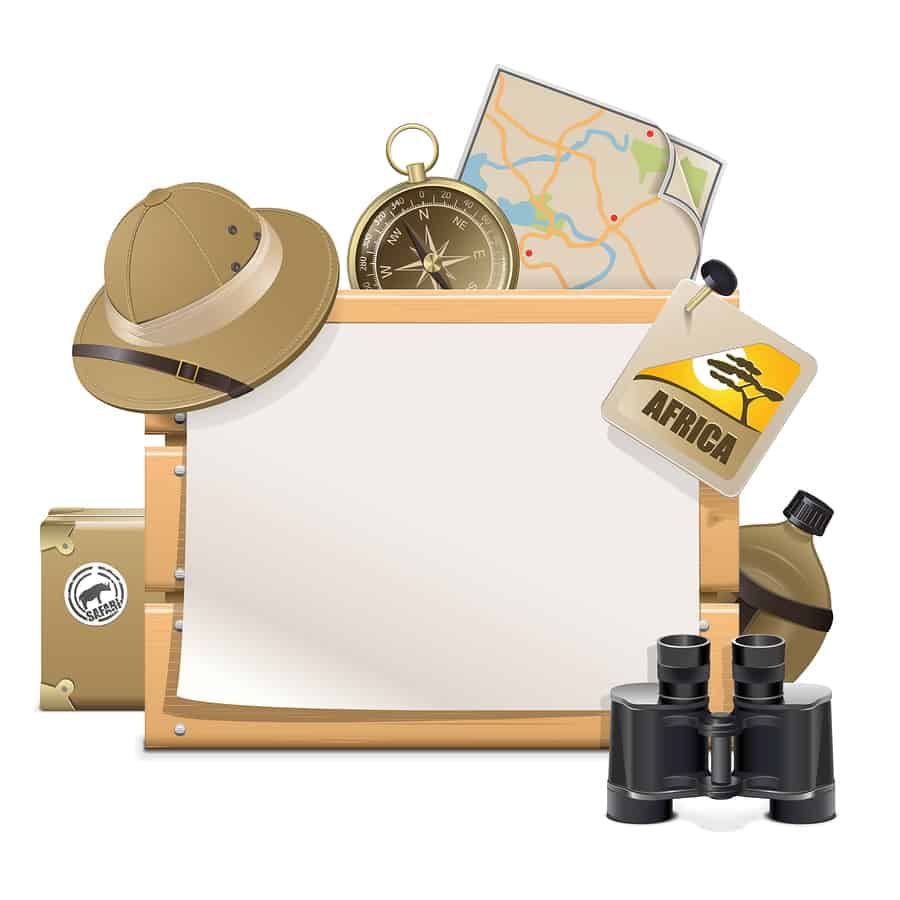Table of Contents
*This post may contain affiliate links. As an Amazon Associate we earn from qualifying purchases.
For your traveling bucket list to be worth anything, it should definitely include going on, at the very least, one African safari. Nothing connects you better to nature than this raw experience.
The African continent is filled with awesome attractions, ranging from numerous wildlife species to some of the most picturesque sceneries on earth. Every country in Africa has something special to offer and this makes it quite confusing when planning to go on a safari.
However, there are some factors that come in handy for this. Here’s how to plan an African safari:
Factors to Consider When Planning an African Safari
1. The Prevailing Weather Conditions of Your Destination
Checking the weather forecasts of your safari destinations should help you decide where to go and what to carry on your trip.
A one-week weather forecast for your destination is enough to help you make a well-informed decision. Your travel agent is also a reliable source for this kind of information.
2. Security Situation of Your Destination
You wouldn’t want to risk traveling to an insecure country in the name of going on a safari. The security situation of a country should guide you in selecting the best destinations.
Today, we still have some beautiful African countries experiencing civil wars and deadly terrorist attacks. The United States regularly issues travel advisories to such countries. So, it’ll be a good idea to check whether your favorite safari destination features on this infamous list before you leave.
3. Political Situation in the Country of Destination
Are the general elections around the corner?
Then that wouldn’t be the best time to visit an African country since political temperatures are normally at their highest. In addition, security concerns in many African countries usually peak during the electioneering period.
Your country’s embassy is the most helpful source of information in establishing the political situation of your country destination, and will advise you accordingly.
4. Your Personal Preferences and Interests
Your interests should be one of the most important factors that influence your African safari destination. All the aforementioned factors are secondary to your personal tastes.
Do you love surfing? Then Uganda will definitely not be a good safari destination because it’s landlocked. However, Uganda would be a perfect selection if you’re interested in mountain gorillas and exotic birds.
What Should You Carry for an African Safari?
Now that we have established what African country you’re heading to, the next course of action is knowing what to carry.
While the choice of what to carry is largely reliant on your choice of destination, there are some must-have items that you just can’t leave behind. They include:
1. Preventative Medications
You shouldn’t leave your home without the recommended vaccines of prevalent diseases in African countries and a healthy supply of preventative pharmaceuticals. Anti-malarial drugs should, of course, be on top of your list.
Don’t forget to carry painkillers and other over-the-counter drugs for a sore throat, indigestion, and stomach upsets.
2. Cameras and Binoculars
It would be a shame for you to visit Africa and leave without stored memories.
But with the introduction of smartphones, people often overlook the significance of cameras. While these smartphones may have excellent megapixels and resolutions, nothing comes close to the good, old camera for a safari.
Also, don’t forget to carry a pair of binoculars. Most game reserves and parks in Africa have regulations restricting the distance between a tourist vehicle and the wild animals. In most cases, you wouldn’t clearly see the wildlife without the help of a pair of binoculars.
3. Suitable Clothing
Are you thinking of rocking a camouflage attire on the African safari to feel more connected to Mother Nature?
Bad idea! Most African authorities do not allow civilians (and tourists) to wear camo clothing.
Fitting t-shirts and safari shorts are ideal for an African tour, particularly if your safari is based on the hot tropics. But if you intend on scaling the snow-capped mountains of Kilimanjaro, Mt. Kenya, or the Atlas Mountains, a fleece jacket or any other warm winter clothing are recommended.
Don’t Forget Your Basic Etiquette and Good Behavior
You should leave all your expensive jewelry and gadgets at home. It’s a safari, not a fashion show. Plus, you can easily lose your valuables in the highly vegetated jungles of Africa.
And don’t forget to carry that perfect smile with you. You’d be surprised at how many lifelong friends you can make in an African safari. You’ll meet people with whom you share similar interests.
There’s nothing as natural as the African wild.

